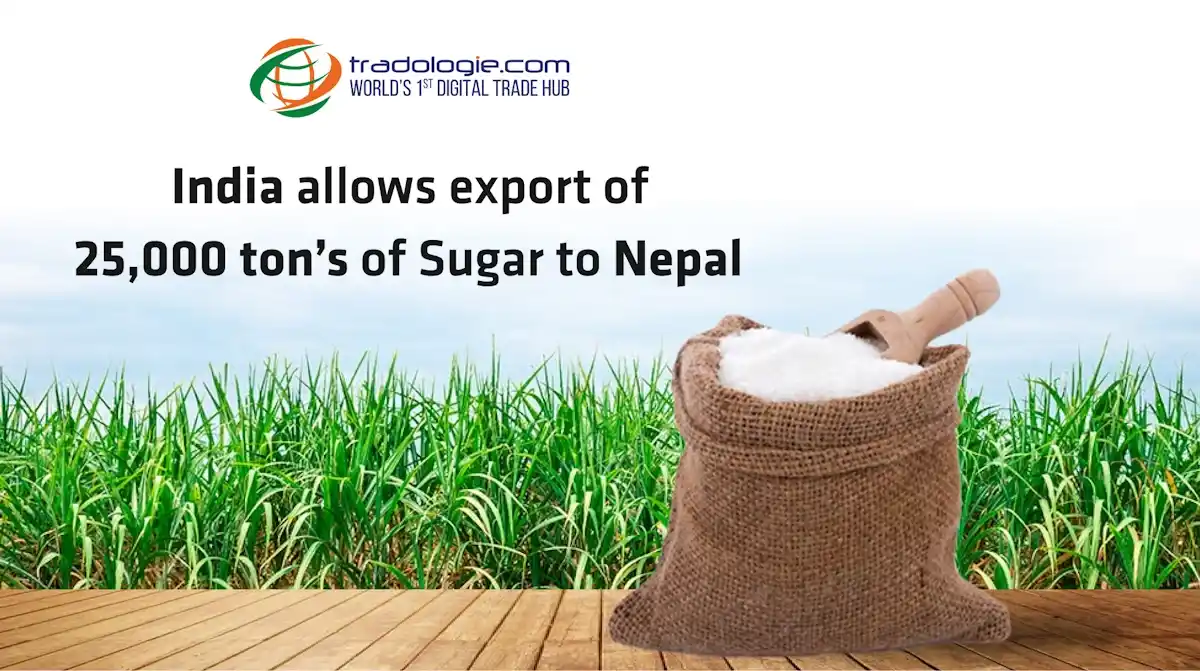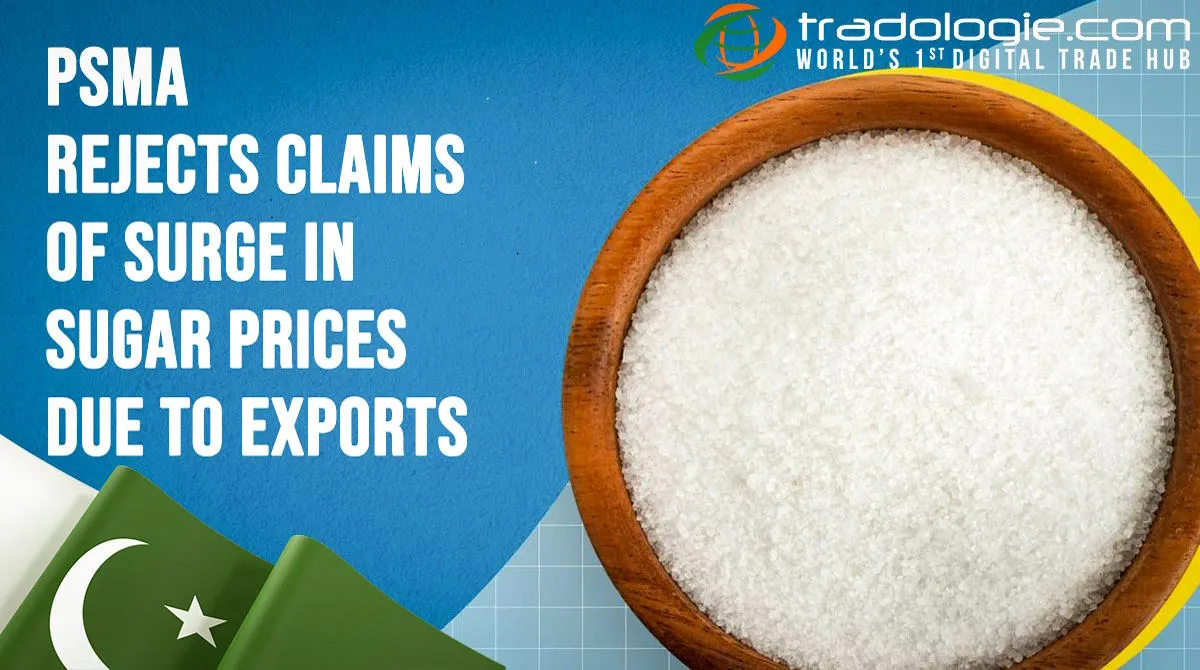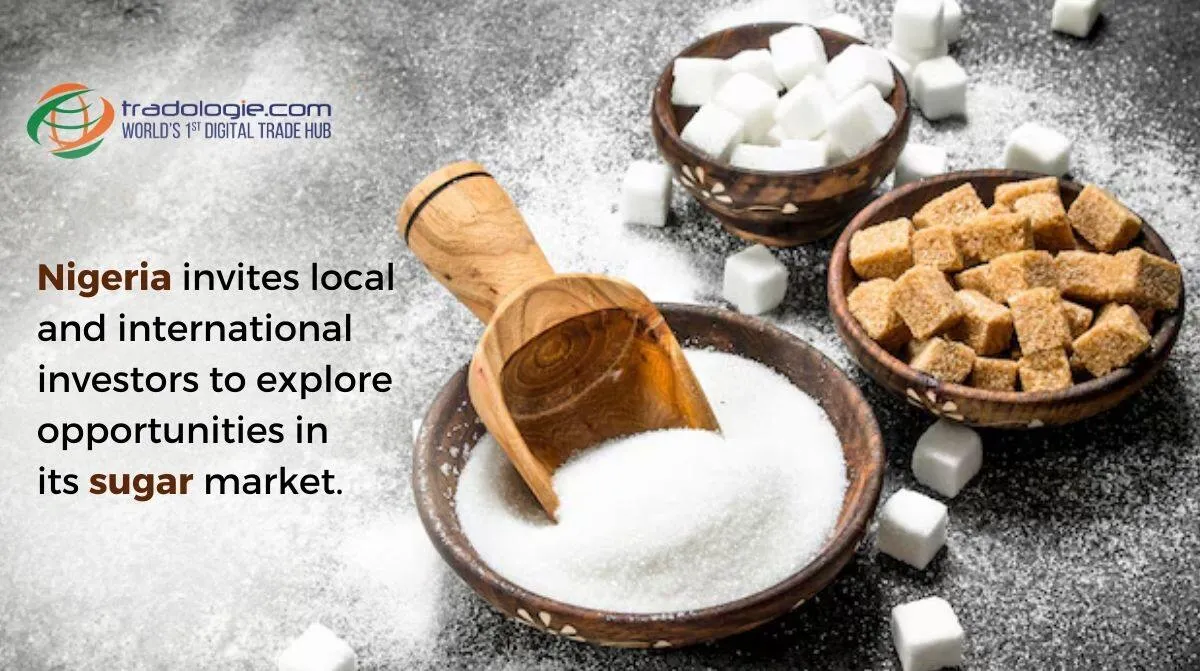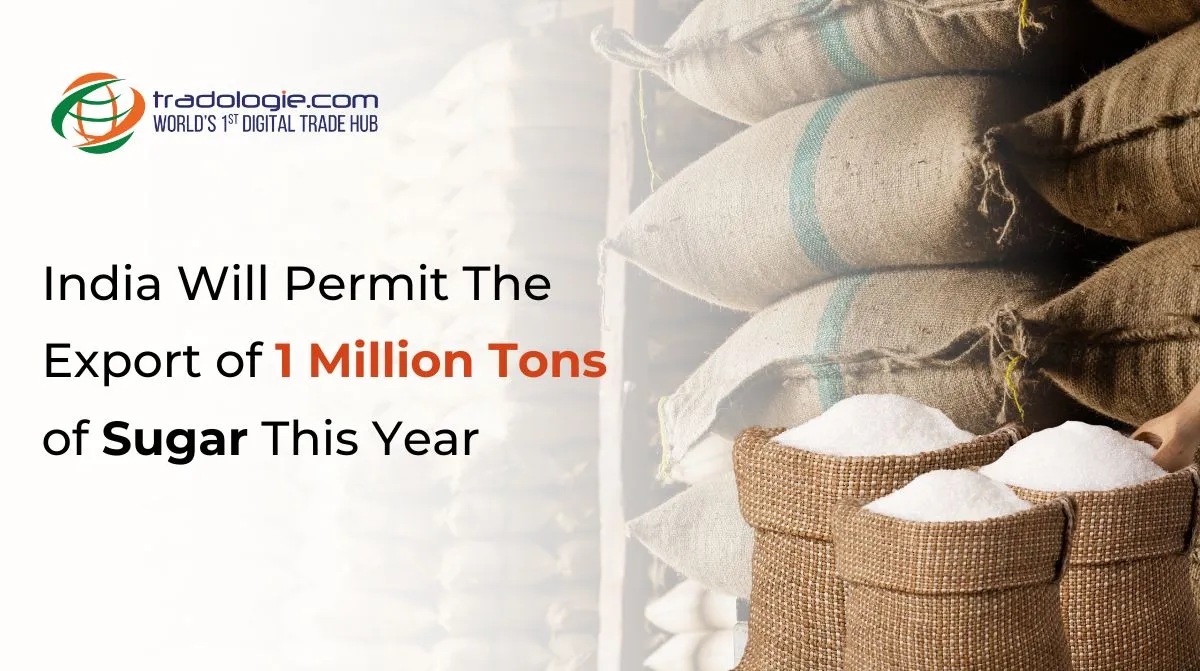New Delhi has authorized the export of 25,000 metric tons of sugar to Nepal on a quota basis until September 30 next year to assist Nepal in securing an adequate sugar supply for the upcoming Tihar festival.
The price of sugar, which was Rs75 per kg a few weeks before Dashain, surged to Rs130 per kg after India imposed export restrictions. It has now reached Rs160 per kg and is in short supply. Importing sugar before Tihar may be challenging, according to market insiders.
The Ministry of Consumer Affairs, Food, and Public Distribution of India approved the sugar export to Nepal. Under this government-to-government arrangement, Nepal will receive sugar through India's National Cooperative Exports Limited.
Gajendra Kumar Thakur, a joint secretary at the Ministry of Industry, Commerce, and Supplies, received an email on Thursday evening and held a meeting on Friday, stating that they have written to the Indian government through the Ministry of Foreign Affairs to facilitate the export of 20,000 tonnes of sugar. Further he said that they are putting forth all efforts to import the sugar before Tihar, which begins on November 11.
Tihar, a festival celebrated with sweet treats, is currently facing a shortage of sugar in sweet shops across the country due to a delay by Nepal's Finance Ministry in approving sugar imports for state-owned supply agencies before Dashain.
“They have asked the Indian government to send the consignment of medium sugar varieties through Birgunj customs”, Thakur said.
The Indian Directorate General of Foreign Trade extended the sugar export restriction beyond October 31. However, based on a notice from India's Ministry of Consumer Affairs, Food, and Public Distribution, a committee of ministers has decided to permit sugar exports to Nepal and Bhutan through the National Cooperative Exports Limited after reviewing the price and availability of essential commodities.
Thakur explained that the plan is to import 20,000 metric tons, out of 25,000 tonnes, of sugar in the first phase, with government supply bodies Salt Trading Corporation and Food Management and Trading Company importing 10,000 metric tons each. The remaining 5,000 metric tons will be imported when sugar prices in India decrease.
For the Tihar festival, sugar imported for the festival will be exempt from customs duty, as announced by the industry ministry. The government imposes a 43 percent tax on sugar imports, comprising a 30 percent import duty and 13 percent VAT.
To provide relief to consumers, the government has halved the import duty on sugar, officials announced. The Salt Trading Corporation, for the Tihar festival, will supply 3,000 metric tons of sugar from various domestic sugar mills, with the first batch of 300 metric tons supplied on a Friday, the industry ministry declared.
This sugar shortage is a result of India suspending sugar shipments for the first time in seven years, citing reduced sugarcane yields due to inadequate rainfall. India permitted sugar mills to export only 6.1 million metric tons of sugar until September 30, after a record 11.1 million metric tons were sold during the previous season.
In response, Nepal's Department of Commerce, Supplies, and Consumer Protection is mobilizing the police and administration to distribute sugar from mills to prevent hoarding. Unauthorized sugar hoarding will be confiscated by the administration.
The Commerce Department's information officer, Ananda Raj Pokharel, revealed that police have been inspecting all sugar mills. In August, the Ministry of Industry, Commerce, and Supplies requested approval to import 60,000 metric tons of sugar to meet the expected festival demand. However, the Finance Ministry approved 20,000 tonnes sugar imports until September 13, just one month before Dashain.
As a result of the delay in import approval and the bidding process, both Salt Trading and the Food Management and Trading Company were unable to import sugar. Subsequently, India issued a notice to restrict Sugar Exporters from mills in early October, halting the first time sugar shipments in seven years.
In a surprising move, India banned exports of non-basmati white rice in July. Additionally, New Delhi imposed a 40 percent duty on onion exports in August in an attempt to stabilize food prices before the state elections later in the year.
Nepal typically requires around 270,000 metric tons of sugar each year, leaving a 100,000 metric ton deficit. This deficit is usually covered by private sector imports and, at times, by two government agencies.
If you are involved in the sugar trade and looking to buy or sell sugar in bulk, look no further than Tradologie.com. This cutting-edge platform offers a seamless digital experience, facilitating the entire process from enquiry to delivery for bulk agro-commodities.
Tradologie.com empowers buyers and sellers to directly negotiate prices, ensuring the best quality and inspected commodities at competitive rates. By eliminating middlemen, the platform allows for increased profit margins for both sellers and buyers, ultimately benefiting the end consumers by reducing the overall cost of trade.
Sellers stand to gain broader access to new global buyers, leading to more business orders and higher profits. Meanwhile, buyers can source sugar at competitive prices, enabling them to meet market demands more efficiently.
To register as a buyer, click here. To register as a seller, click here.
Stay up-to-date with the latest developments in the agro-trade industry by following Tradologie.com on all major social media channels and Click here to Latest Agriculture News





